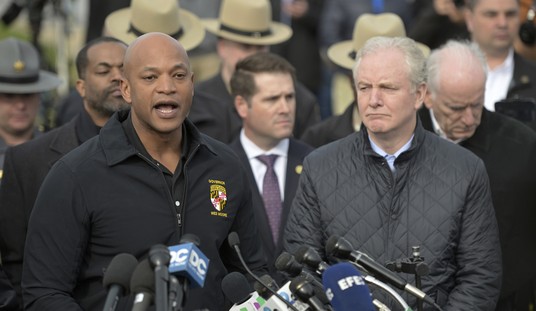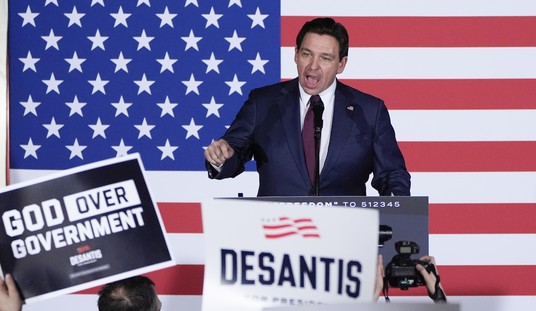The Obama administration’s efforts to work around mandatory-minimum sentencing in non-violent drug cases through prosecutorial discretion has won Attorney General Eric Holder some plaudits. But why should that stop with Eric Holder and the Department of Justice? Jacob Sullum points out that Barack Obama himself can do much more directly through the power of the pardon, but seems unwilling to act:
This week Eric Holder said something that critics of our criminal justice system have been saying for decades but no other U.S. attorney general has managed to say while still in office. “Too many Americans go to too many prisons for far too long, and for no truly good law enforcement reason,” he declared in a speech to the American Bar Association. “Widespread incarceration at the federal, state, and local levels is both ineffective and unsustainable.”
Holder called upon Congress to reform mandatory minimum sentences and outlined steps the Justice Department will take in the meantime to avoid imposing “draconian” penalties on nonviolent, low-level drug offenders. He said his boss, President Barack Obama, shares his concern about mass incarceration and harsh sentences. But Holder neglected to mention that Obama has the power to free people who do not belong in prison—a power he has exercised just once during almost five years in office.
Article 2, Section 2 of the U.S. Constitution gives the president the unilateral, unreviewable authority to “grant reprieves and pardons for offenses against the United States.” So far Obama, who has not otherwise been shy about pushing executive power to the limit (and beyond), has granted 39 pardons, clearing the records of people who completed their sentences years ago, and one commutation, shortening the sentence of Eugenia Jennings, an Illinois woman who was convicted in 2001 of selling 13.9 grams of crack to a police informant. Obama cut her prison term from 22 years to 10, and she was released in December 2011.
That is an amazingly stingy clemency record for a supposedly enlightened and progressive man who before he was elected repeatedly described our justice system as excessively punitive. While running for president in 2008, Obama promised to “review drug sentences to see where we can be smarter on crime and reduce the blind and counterproductive sentencing of nonviolent offenders.” Yet he has granted commutations at a rate that makes Richard Nixon, who declared war on drugs and campaigned as a law-and-order candidate, look like a softie. Nixon granted 60 commutations, 7 percent of the 892 applications he received, during his 67 months in office, while Obama has granted one out of 8,126, or 0.01 percent, over 55 months.
One reason for this, on which Holder could elaborate at length, is the political risk inherent in pardons and commutations. Holder gave his approval to the Bill Clinton pardon of Marc Rich, the financier who fled the US rather than face charges of fraud, and it blew up in Clinton’s face as he exited the presidency. Rich’s ex-wife was a big Democratic contributor, and Rich’s attorney Jack Quinn was a friend of Holder’s. Former Arkansas governor Mike Huckabee received an avalanche of criticism for pardoning a felon who went on to commit murders.
There are plenty of other examples, but those spell out the political risk well enough. What’s the upside to pardons? Well, um … writers like Jacob Sullum will occasionally write about your merciful nature if you’re fortunate enough for them to notice, and it will provide some personal satisfaction to exercise mercy. That’s about it. Thanks in part to the enduring disgust over rising crime rates in the past that pushed Congress and many states to adopt mandatory-minimum sentencing laws, voters are much more likely to reward toughness rather than mercy. Politicians will respond accordingly, including Obama.
However, Sullum correctly points out that Obama wants to have it both ways — at least at the moment. He wants credit for using prosecutorial discretion through Holder’s condemnation of “draconian” sentencing, while ignoring the fact that he had plenty of opportunity over the last 55 months to correct those injustices, if that’s how Obama truly sees those cases. Now that Obama has won re-election, I would bet that we’ll see an uptick in presidential pardons, but at least so far in Obama’s second term we’re not seeing anything of the sort.








Join the conversation as a VIP Member